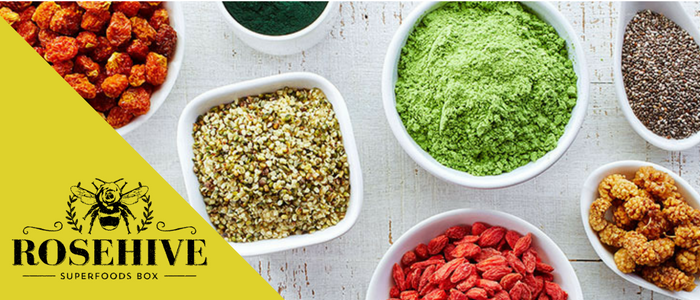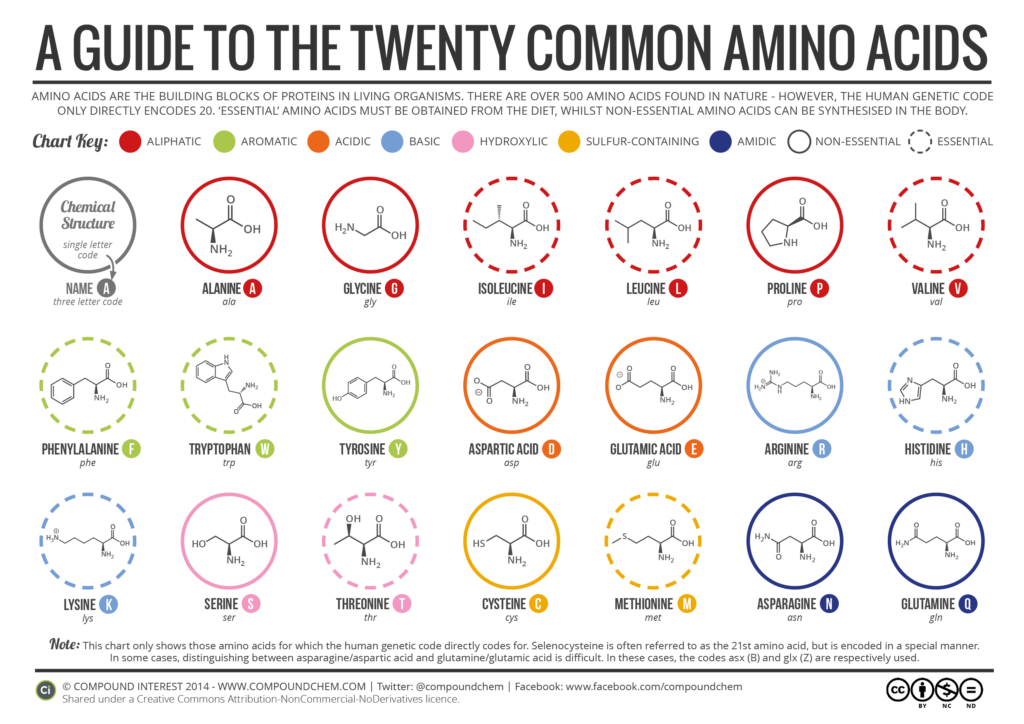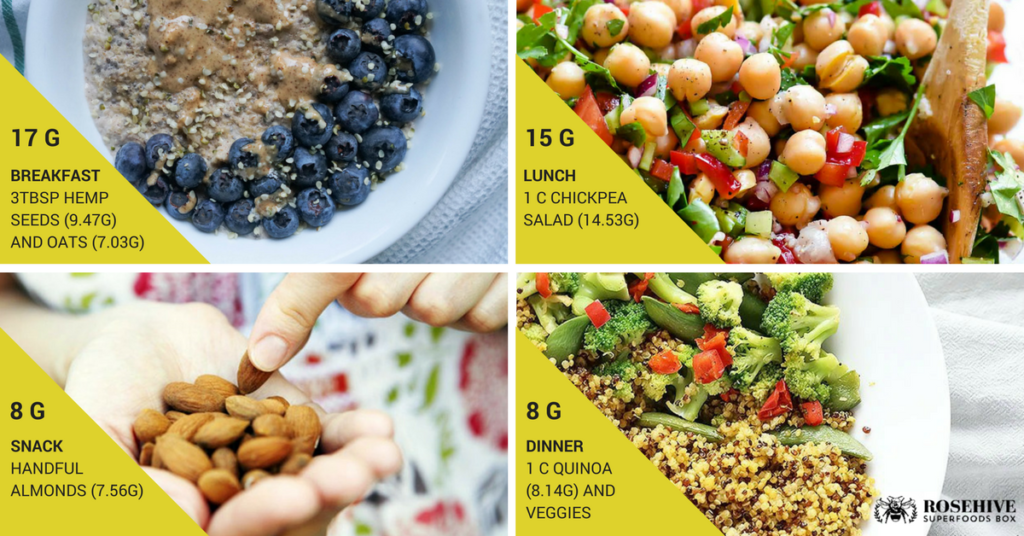
Learn More About April’s Plant Based Protein Box Here.
First, let’s get to know amino acids…
Amino acids are the building blocks of protein. Your body needs them to make the protein structures that build and maintain the tissues in your body. There are many different amino acids; they all have similar structures but are differentiated by their side chains. All proteins, no matter what food they come from, are made up of amino acids.
There are 20 different amino acids that can form a protein, and the human body can’t produce nine of them on its own – these 9 amino acids that our bodies need but cannot make are called “essential amino acids.” In order to be considered “complete,” a protein must contain all nine of these essential amino acids in equal amounts.
The 9 Essential Amino Acids are:
- Histidine
- Isoleucine
- Leucine
- Lysine
- Methionine
- Phenylalanine
- Threonine
- Tryptophan
- Valine

We don’t need the complete amino-acid profile in every meal. We only need only a sufficient amount of each amino acid daily. Dietitians confirm that plant-based foods contain a wide variety of profiles. As long as you get a variety of proteins throughout the day, you’ll get ample amounts of each amino acid. But, just in case you’re interested, here are 7 plant-based foods that are considered complete protein sources:
1. Moringa
Moringa is popping up on the market a lot lately, and for good reason! Moringa is a complete source of plant protein. A serving of moringa contains all 9 essential amino acids.
2. Buckwheat
Buckwheat is hearty and versatile—and isn’t a type of wheat at all. In fact, it’s a cousin of rhubarb. Japanese buckwheat noodles, or soba, are a great protein source.
3. Hemp
Hemp foods are rich in protein and have all 10 essential amino acids. They also contain omega-3, omega-6, stearidonic acid (SDA), and the rare omega-6 Gamma Linolenic Acid (GLA). What’s so great about GLA? Well, GLA has been shown to help with cholesterol, inflammation, skin and hair health, balancing hormones, and general heart health. Just three teaspoons of hemp protein powder contains 15 grams of protein. That’s 30 percent of your daily value!

4. Chia Seeds
16.5g of protein per 100g of chia seeds! Chia Seeds are also loaded with iron, calcium, zinc, and antioxidants. Since they form a gel when mixed with water, they make a great egg replacer. They’re also perfect for puddings and smoothies.
5. Quinoa
Quinoa also has a relatively high amount of protein for a grain at 13.8 percent protein. One cup of cooked quinoa contains 8 g of protein, while the same amount of barley contains only 3.5 g of protein and brown rice contains only 5 g of protein.
6. Soy
Soy is one plant protein that contains all the essential amino acids. It’s also a good source of healthy fats and phytochemicals (plant chemicals that may be good for you). It’s usually served as tempeh or tofu, and soy milk is a popular replacement for milk.
7. Spirulina
Spirulina is considered a “superfood” and, when combined with grains, oats, nuts, or seeds, forms a complete protein. Add spirulina powder to your next morning smoothie. This superfood is so super even NASA has conducted studies on it as a potential food for space travel. NASA found that 1 kg of spirulina had the same nutrients found in about 1,000 kg of vegetables. This algae is also chock full of vitamins, minerals, protein, & healthy fats, too! Think: 57g protein per 100g! Crazy!
Adding any of these foods, along with combining your other protein sources, will help you get all your essential amino acids met every day. Enjoy!
Learn More About April’s Plant Based Protein Box Here.
![]()

